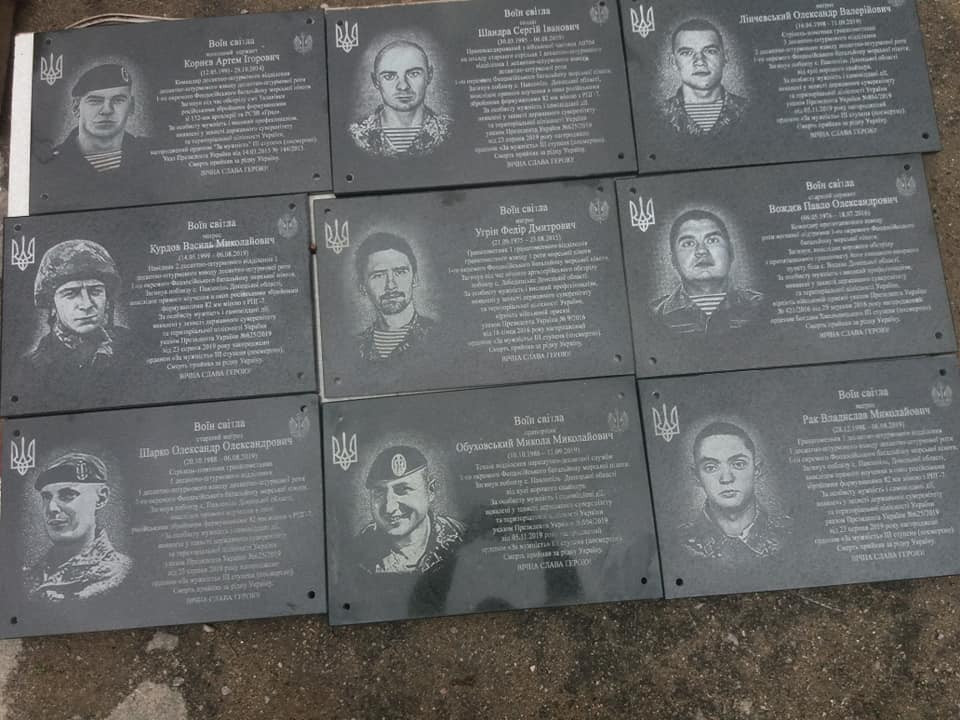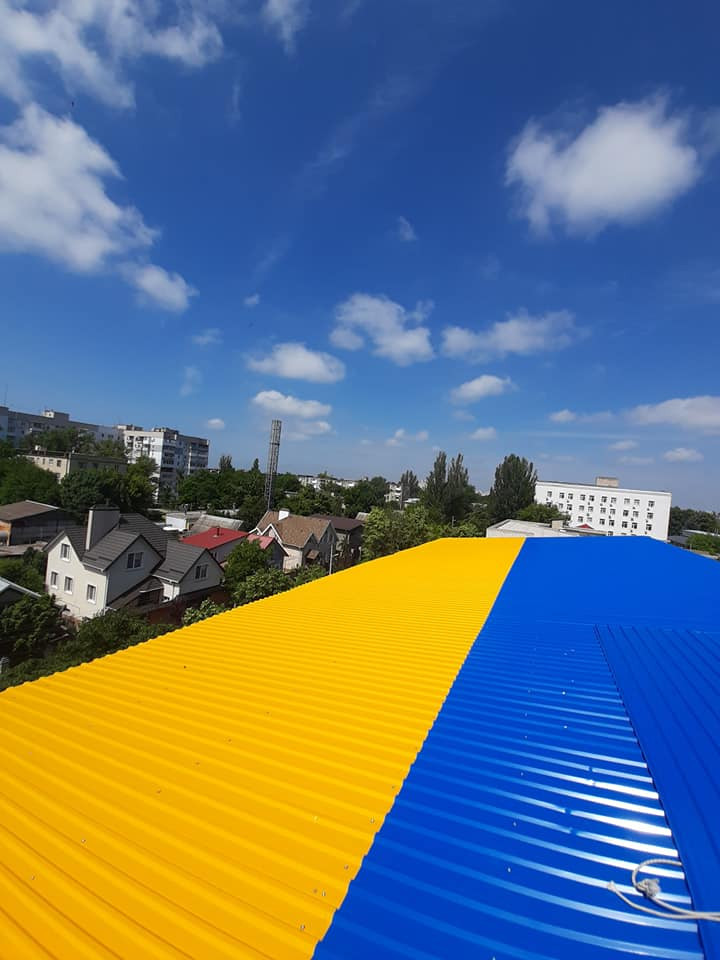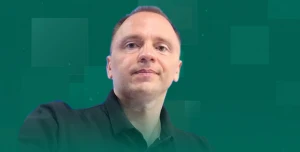
Kherson volunteer speaks out on tortures and life in Russian occupation
Oleh Barkarenko, a volunteer from Kherson, the founder of the Avtomaidan Kherson NGO and the charity fund Ukrainian Hearts, experienced first-hand Russian occupation and tortures for pro-Ukrainian stance.
Since 2014, together with like-minded people, he has travelled throughout the eastern Ukraine playing Ukrainian songs, and repeatedly visited the front lines. At his own expense, he made and installed 150 memorial tables to fallen heroes of Ukraine in the Kherson, Donetsk, Mykolaiv, Zaporizhzhya, and Luhansk regions. He was a deputy of the Kherson District Council. A few months before the occupation, he said: "I do not want to see the times when these memorial plaques will be destroyed." But that is exactly what happened. Russian troops not only did kill and rob, but also smashed memorial signs and any Ukrainian symbols.

Russian forces were looking for Oleh Barkarenko all over Kherson and the surrounding area, they had his photos on their phones and at roadblocks. Espreso TV interviewed the man on how he managed to survive in such conditions, what his liberated hometown looks like now and what the residents feel after the de-occupation.
"Thrashed the arm with the blunt edge of an axe"
In February, Oleh Barkarenko signed up for the ranks of the Kherson Territorial Defence Forces. When Russian occupiers entered Kherson, they immediately came to the military-patriotic centre created by the volunteer. Portraits of Taras Shevchenko, a Ukrainian poet and symbol of national resistance, Ukrainian symbols and the inscription "Glory to Ukraine'' were covering all of the walls there. The inscription has survived to this day because it was carefully hidden.
"When the full-scale war began, I witnessed Russian troops’ entry into the city. During that time, I was serving in the territorial defence forces, together with 450 others from Kherson, transfering the dead and wounded. Russian forces first came to Mykolaiv, and then entered Kherson. The entry was easy since the deputy head of the Kherson State Security Service surrendered all the approaches to the city and they came here as if they owned the place. The commander cried bitter tears after that," recalls Mr. Barkarenko.
Following the occupation of the city, Russian soldiers executed everyone who did not bend to their rules. They persecuted, tortured and killed. Mr. Barkarenko says that he was lucky to survive, even though he experienced torture and hiding during this time.
"Twenty men came to our centre on armoured vehicles and said: "Well, grandpa, luck abandoned you at your old age." They threatened to chop off limbs, and one of them constantly thrashed my fingers with an axe. And then he hit my arm with the blunt edge, it got swollen twice in size; I still have the scar," says the volunteer.
He believes that he was saved only due to the way he was dressed, since he looked "homeless" in work uniform. Therefore, Russian occupiers probably did not realise who he actually was. After all, later Barkarenko was purposefully searched for throughout the city. Some time later, they came to his mother's apartment asking: "Where is your bastard, terrorist and nationalist?" They took all his documents. He even knows who has exposed him.
"I never left, because I did not want to let others who kept on struggling down"
Oleh Barkarenko's patriotic centre in Kherson is known to all residents. The roof of the house, having an area of 240 km² and being painted in blue-yellow colours, is easily visible from airplanes. There is nothing the occupiers could have done to get rid of such a flag, so they have just walked over it and left. However, they damaged the centre itself.
"They tore down all the posters: quotations from Taras Shevchenko's poems, his portraits, photo of Serhiy Nihoyan, a Ukrainian revolutionary who died in the Maidan Uprising; everything was destroyed. But they did not find inscriptions in capital letters "Glory to Ukraine! Glory to the heroes." We had covered them and they are still there," says the volunteer.
During the occupation, Barkarenko was hiding in various trusted places. He did not see sunlight for eight months.
"When I was hiding, I wasn't afraid that someone would expose me. After all, those people who gave me shelter were sacrificing a lot. I stayed not because I was afraid for my life. I was afraid to let down people who were close to me in spirit, who were counting on me. I also had no plans to leave the occupied territory later. Russian soldiers had my photo on their phones and at the checkpoints, so there was no point in trying to escape," the man explains.
Virtually no information from the Ukrainian side was available, only Russian propaganda. Barkarenko found it mostly funny. However, he would get petrified when hear the word "denazification". He realised that it encompassed the complete destruction of the Ukrainian people.

Now the collaborators in Kherson are being treated to a Western humanitarian"
During the occupation, Mr. Barkarenko lost several sports equipment stores and property worth UAH 20 million. However, the occupiers were interested not only in valuables, they did not disdain even raw food.
“I was spreading the humanitarian aid I had for as long as I could. It included frozen croissants, hamburgers and burgers that the people of Lviv left. And then Russian soldiers came and looted everything. Even raw croissants; 30 boxes of 45 pieces got taken; they stole even that," he recalls.
Now, after hiding for eight months, mixed with great joy, he feels complete devastation.
"It had only been a couple of days since I had seen the sky for the first time in so long. But, along with great joy, I also feel devastation. Everything I've worked for years has been looted. And no one cares now, neither the city nor the law enforcement officers. They don't have time for that. And it hurts even more when I see looting even now, in liberated Kherson. Trucks with humanitarian aid arrive, and in a few days I see those canned food being sold for 70 hryvnias," he explaines.
From personal experience, he says that there are many Russian supporters left in Kherson who need to be identified and tried. Those who were ready to participate in pseudo-referendums are now being fed and given humanitarian aid instead.
"It has always been like that. There are people who have been concerned for me. And there are people who laughed and showed me the finger when we were driving and playing Ukrainian songs. Now, on the rise of liberation, I see that people drive with Ukrainian flags and symbols. But then they "give up". Because loving Ukraine is not about singing the national anthem, wearing an embroidered shirt or waving the flag. It is precise, hard, daily work," says Barkarenko.
Now he is volunteering again. He offered his services to the local authorities, but the volunteer's help was refused.
"I think that the Kherson authorities do not have a clear coordination plan. It seems that the liberation rise has worn off. The morgue is littered with corpses. Places intended for 4 bodies store 20 of them. They are lying, rotting without refrigerators and no one knows to whom those bodies belong. When a person dies, they lie in the morgue naked, with no epaulettes or insignia," the man adds.
In the future, Barkarenko plans to engage in military rehabilitation. He says he remembers well how difficult it was to return to peaceful life after the war in Afghanistan.
"Do I feel free and safe in Kherson now? I have never given it a thought, actually. Russian forces have so much on me that I don't care anymore. Come what may," the volunteer concluded.
- News












































